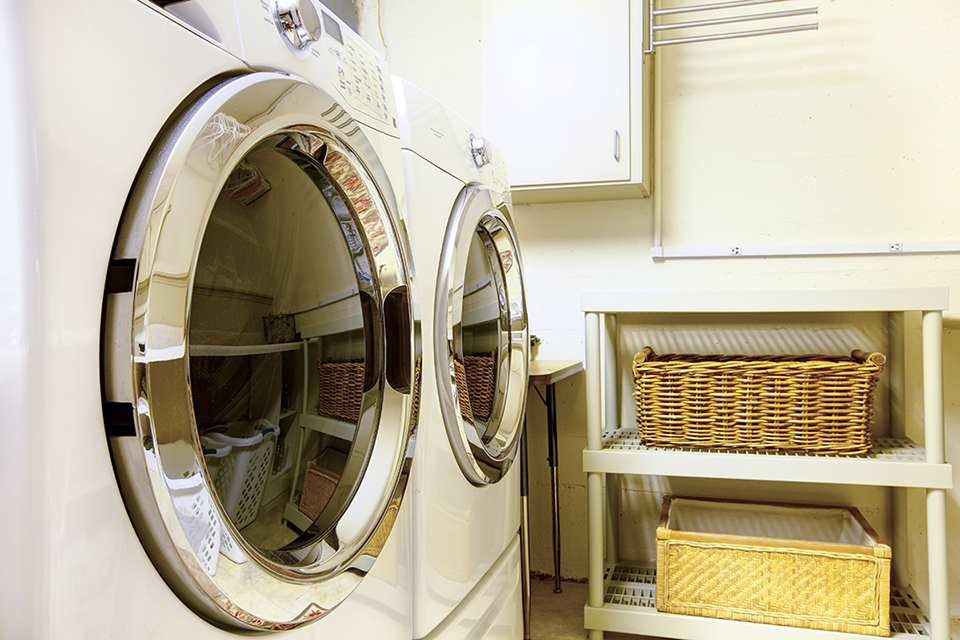
How to shop smarter for appliances online
Buying an energy-efficient household appliance online doesn’t have to be hard.
Ageing household appliances, such as refrigerators, clothes washers and dishwashers may be costing you money in the long run. Upgrading to more energy-efficient models can help you save on energy and water costs year-round.
Of course, major appliances are an investment and buying them online may feel daunting – but it doesn’t have to. Whether you plan to “window shop” online before visiting a store, or you’ll be making your purchase in just a few clicks, here are some tips to shop smarter online.
Start with ENERGY STAR®
Once you know the appropriate size of the appliance you need, looking for ENERGY STAR® certified appliances is the easiest way to ensure the appliances you’re buying will be energy efficient. The signature blue label will be on the appliance itself in the store, but most retailers also list the ENERGY STAR® certification in the product descriptions on their websites.
You can also use the ENERGY STAR® product finder online. Each year, ENERGY STAR® releases its Most Efficient appliances list, which offers a good starting point for selecting a new model.
Most major appliances in Canada also come with an EnerGuide label which helps you see how a product stacks up to others in its class in terms of energy efficiency. While you may not be able to view the label online, consider reaching out to stores directly for the label information on the models you have in mind.
Compare apples to apples
When shopping online, it’s easy for your eyes to wander to the overall price, but there are other factors to consider when comparing products. Make sure you’re comparing models of the same size and with similar specifications. Reading reviews on a variety of retailer websites and the manufacturers’ sites may also help you assess a model’s long-term durability and quality so you can make the right decision.
Looking out for the manufacturer’s model number is the easiest way to ensure you’re comparing the same products across retailer websites and customer reviews. The model number is also important to note for future repairs or ordering parts.
Remember to calculate all the costs beyond the sticker price. Taxes, warranties, delivery and installation may each be an additional line item. Look out for these and other potential “extra” costs or features that you may not want or need.
Consider smart features
Many ENERGY STAR® certified appliances come with features that allow you to adjust energy and water use as needed, such as for smaller clothing loads or light dishwasher cycles.
Some appliances are also Wi-Fi-enabled and offer smart features that may help you curb your energy consumption. These appliances connect with your smartphone, tablet or other smart devices in your home, which can help you with scheduling and maintenance,
For example, a smart dryer may detect an airflow blockage and alert you. Some smart refrigerator models also let you see inside the fridge without opening the door, so you can save energy. They will also remind you of when the condenser needs cleaning, which is important for maintenance and reducing energy consumption.
Smart appliances tend to be more expensive than other models but can make your life easier and help reduce your energy costs.
Plan for your old appliances
It may be tempting to keep old appliances like refrigerators or freezers in the basement or garage, but consider whether you really need them, or if they’ll simply be adding to your energy bills without providing value in return.
If you are going to dispose of your old appliances, plan ahead for doing so safely. Many retailers will offer free pickup and disposal of your old appliances when you purchase new ones, but you should always ensure this service is covered in the cost of the delivery and installation.
If this is not the case, check the rules for disposing of large appliances with your local municipality. Many will pick up these oversized items during regular garbage collection but have guidelines for putting them at the curb safely, such as removing refrigerator and freezer doors. If that’s not an option where you live, you may want to factor in the cost of using a private junk removal company to pick up and dispose of your appliances safely.
Finally, if your appliance is still in good working order, you may also want to donate it. Some charitable organizations will pick up used appliances for free to be reused or re-sold, and some may even offer a tax receipt for your donation.
Take advantage of incentive programs
In Ontario, income-eligible households may qualify for upgrades of their appliances at no cost through the Save on Energy’s Energy Affordability Program. Learn if your household is eligible today, to start saving more energy all around your home.



